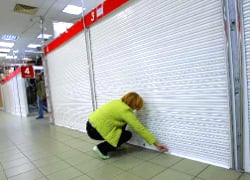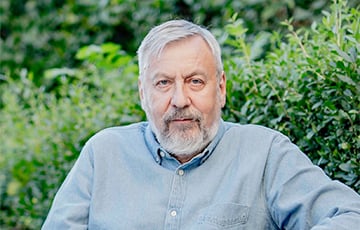Market traders in Rechytsa go on strike
10- 4.03.2015, 9:40
- 32,200

Most stalls at the town's biggest markets – Central and Slavianski – were closed.
Market traders protest against decree No.222 on the mandatory certification of light industry products, Radio Racyja reports.
According to democratic activist Valery Putsitski from Rechytsa, people will have problems with buying goods and the district budget will get less money.
“Under decree No.222, it is forbidden to sell stocks without documents. But how are people supposed to work if they don't have documents?” he asks.
Market sellers say they cannot get certificates in Russia. Russian businessmen refused to work with Belarusians, Aleh Shabetnik, a representative of the council of Rechytsa market traders, says. According to him, they refuse to work because they don't want to issue certificates for light industry products.
“It is impossible to get documents in Moscow. Russia postponed the implementation of technical regulations until 2017. They do not need the certificates that we must have. So, Russia does not issue certificates for light industry products. Sellers in distribution centres laugh at us and put up notices “no deals with Belarusians”. Under decree No.222, we must have certificates and accompanying documents since March 1,” he says.
Market traders from Rechytsa joined the national protests against decree No.222 on the mandatory certification of light industry products. They say they won't work until March 6.
The Forum of Small Businessmen, which was held in Minsk lately, failed to achieve the main aim – postponing the coming into force of Lukashenka's decree No.222 that obliges sellers to have accompanying documents for all items on sale. Trading without accompanying documents in porhibited. Traders will be fined 9 million rubles for violations and their goods will be confiscated.
Controlling agencies have been carrying out checks on a large scale and confiscating goods for the last few months.
Market traders didn't work on March 1. All biggest markets in Minsk and other towns were empty. Half of traders explain their absence at work with “holidays”. Many “went to buy goods” or say directly they suspend the work until clarity appears.










